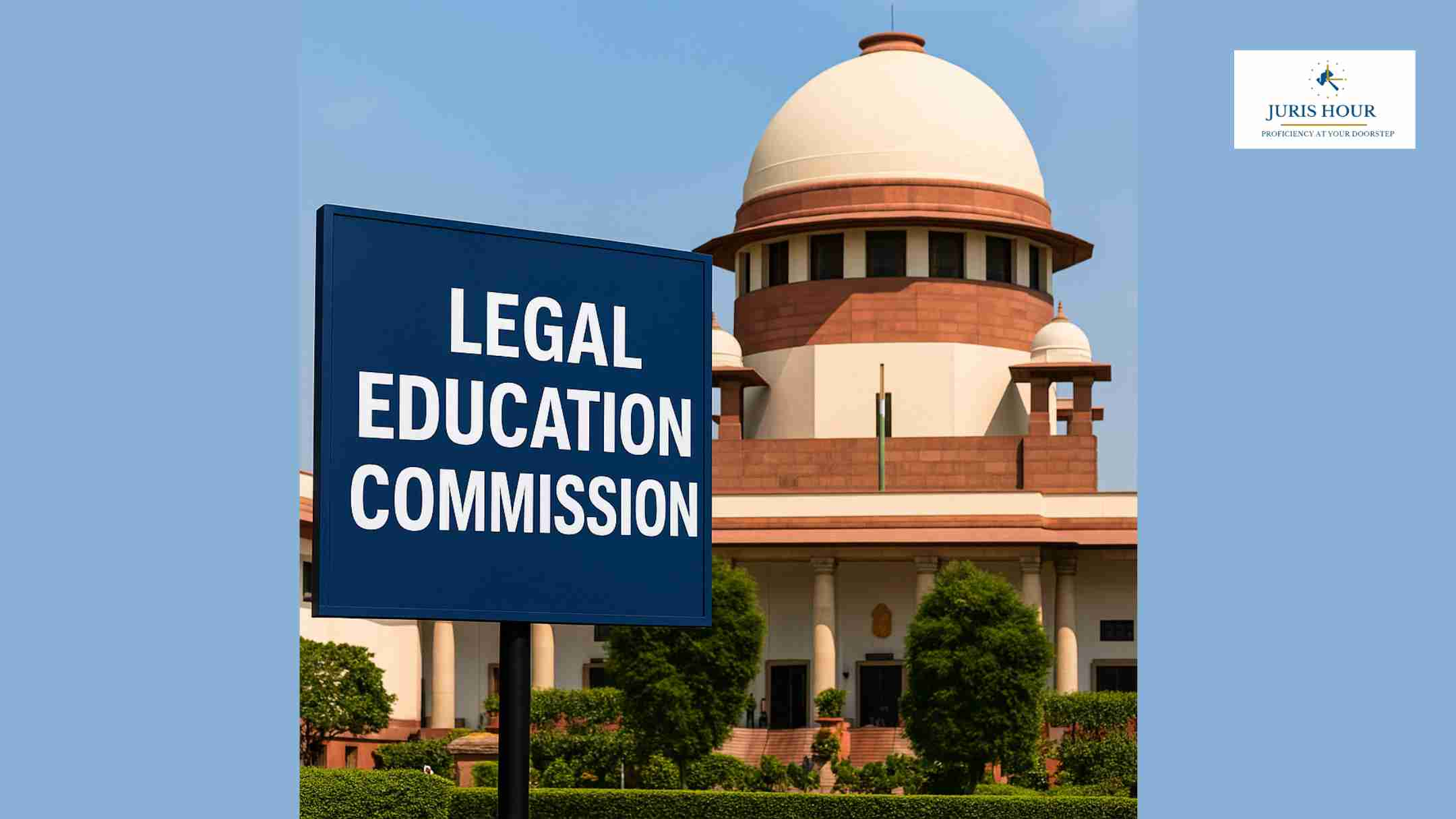PIL Demanding Legal Education Commission Filed Before Supreme Court

PIL Demanding Legal Education Commission Filed Before Supreme Court
The Public Interest Litigation has been filed before the Supreme Court demanding the Legal Education Commission which is said to be the need of the hour but has not yet constituted the Bar Council of India (BCI).
The petitioner, Ashwini Kumar Upadhya urged the Central Government to constitute a Legal Education Commission or an Expert Committee comprising eminent educationists, jurists, retired judges, senior advocates, and professors. The petition seeks an overhaul of the existing LLB and LLM curricula, their duration, and broader reforms aligned with the National Education Policy (NEP) 2020.
The PIL raises serious concerns regarding the five-year integrated law programs (BA-LLB/BBA-LLB), arguing that they are disproportionately long, academically overloaded, and financially burdensome, especially for students from middle- and lower-income families. The petitioner highlights that non-law subjects like History, Economics, Political Science, and Sociology, though included in the curriculum, are unrelated and contribute little to legal practice, often extending the course duration without proportional academic or professional benefit.
Citing recent UGC guidelines allowing four-year undergraduate degree holders to directly pursue PhDs, the petition argues that the legal education system remains outdated, placing law students at a disadvantage when compared with peers in other professional streams like engineering or sciences, where the course durations are shorter but equally rigorous.
The petitioner contends that despite the NEP 2020 advocating flexibility, multi-disciplinary choice, and reducing rigid boundaries between fields of study, the Bar Council of India (BCI) has failed to re-examine the feasibility, rationality, and necessity of the five-year course format. Students from science backgrounds or those aiming for judiciary and UPSC exams are particularly affected by the compulsion to study unrelated subjects, often delaying their career paths by several years.
The plea criticizes the financial model of law colleges, noting that students are charged full fees even during internship periods, despite minimal college involvement. It emphasizes that students often take gap years to prepare for entrance exams like CLAT, and face severe pressure when failing non-core subjects, sometimes extending the law degree to six or seven years.
Quoting legal luminaries such as Late Shri Ram Jethmalani and Shri Fali Nariman, who began their legal careers in their teens and early twenties under the earlier three-year law model, the petitioner urges a return to streamlined legal education, recommending a four-year LLB course more aligned with current educational standards and economic realities.
The matter has gained urgency with the 2025 law college admissions cycle underway. The PIL asserts that the right to access quality and affordable legal education is inseparable from the fundamental right to justice under Article 21, and that a Legal Education Commission is the need of the hour to ensure reform, accessibility, and excellence in legal education in India.
Read More: Sumit Dutt Majumder Releases His Fifth Book on GST: “GST After About Eight Years – An Evaluation”

